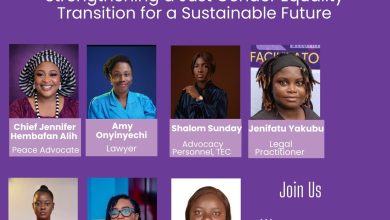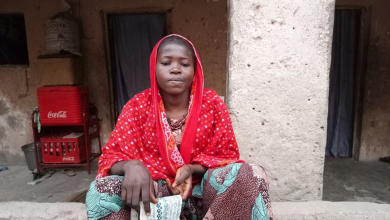Eradicating FGM: A Call to Action on International Zero Tolerance Day

|
Getting your Trinity Audio player ready...
|
It is no news that in African society and even worldwide, several activities are harmful to girls, among which is Female Genital Mutilation (FGM).
According to the United Nations (UN), Female genital mutilation (FGM) comprises all procedures that involve altering or injuring the female genitalia for non-medical reasons and is recognised internationally as a violation of the human rights, the health and the integrity of girls and women.
The World Health Organization (WHO) also defines FGM as “all procedures that involve partial or total removal of the external female genitalia, or other injury to the female genital organs for non-medical reasons.”
Research by WHO has shown that FGM has no health benefits for girls and women. Instead, FGM can result in severe bleeding and problems urinating, and later cysts, menstrual difficulties, infections, as well as complications in childbirth and increased risk of newborn deaths.
ActionAid also reports that FGM has severe physical, psychological, and social consequences for the rest of the girls’ lives. Physical immediate effects of FGM on women include shock, haemorrhage (bleeding), bacterial infections, urine retention, open sores, injury to the nearby genital tissue, and even death. Long-term effects include bladder and urinary tract infections, cysts, infertility, greater risk of complications when giving birth, higher risk of infant deaths during labour, among others.
The UN estimates Female Genital Mutilation to affect about 100-140 million women and girls worldwide, and each year, an additional three million girls are at risk of being subjected to the practice globally.
After many years of going back and forth, the United Nations General Assembly unanimously passed a resolution banning the practice of Female Genital Mutilation in December 2012, making the practice a violation of human rights internationally. However, FGM is still being carried out in most countries in Africa as well as Asia and South America.
Types of FGM
According to research, Female genital mutilation (FGM) is categorised into four main types:
Type 1: This involves the partial or complete removal of the clitoral glans (the external and visible portion of the clitoris, known for its sensitivity) and/or the prepuce (the fold of skin surrounding the clitoral glans).
Type 2: This consists of the partial or total removal of the clitoral glans and the labia minora (the inner folds of the vulva), with or without the removal of the labia majora (the outer folds of skin of the vulva).
Type 3: Also referred to as infibulation, this type entails narrowing the vaginal opening by creating a covering seal. This is achieved by cutting and repositioning the labia minora or labia majora, sometimes using stitching, with or without the removal of the clitoral prepuce and glans.
Type 4: This category encompasses all other harmful procedures to the female genitalia performed for non-medical reasons, such as pricking, piercing, incising, scraping, and cauterising the genital area.
Key facts on FGM according to UN Women
According to available data in Jan. 2025 from 31 countries where FGM is practised in the western, eastern, and north-eastern regions of Africa, and some countries in the Middle East and Asia, more than 230 million girls and women alive today have been subjected to the practice with more than 4 million girls estimated to be at risk of FGM annually. Other facts are:
- More than 230 million girls and women alive today have undergone female genital mutilation (FGM) in 30 countries in Africa, the Middle East and Asia where FGM is practised.
- FGM is mostly carried out on young girls between infancy and age 15.
- FGM is a violation of the human rights of girls and women.
- Treatment of the health complications of FGM is estimated to cost health systems US$ 1.4 billion per year, a number expected to rise unless urgent action is taken towards its abandonment.
In conclusion, the ongoing prevalence of Female Genital Mutilation (FGM) especially in Africa, highlights the urgent need for action to eliminate this harmful practice on the girl child. Governments, NGOs, and communities must unite to raise awareness, strengthen legal protections, and provide support for survivors. By amplifying the voices of those affected and fostering a culture that values the health and rights of girls, we can work towards a future free from FGM. Together, we can empower future generations to live without the fear and consequences of this violation.






